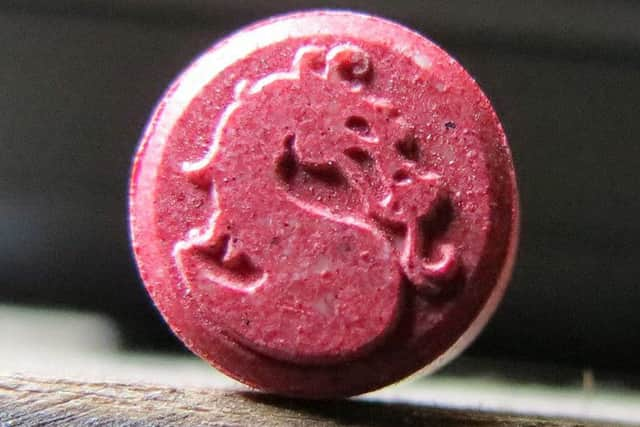Girl, 17, dies after taking ‘Mortal Kombat’ pill


The 17-year-old, named as Regane MacColl, was at a club – understood to be The Arches in central Glasgow – when she took ill from taking a red ‘Mortal Kombat’ tablet on Saturday night and later died.
Four others were rushed to hospital after similar incidents at nightspots in Glasgow and Ayrshire on Friday and Saturday.
Advertisement
Hide AdAdvertisement
Hide AdPolice Scotland and two health boards last night issued a stark warning about the tablets as a post mortem examination is carried out into the cause of death of the girl, from Clydebank.


Officers said the pills have a dragon stamp on them and are thought to be the common link between the incidents, but could not confirm what the drug was as yet.
Along with the death of the teenager, a further three men and one woman were also admitted to hospital in separate incidents after feeling unwell from taking drugs.
One woman, aged 19, was admitted to the Glasgow Royal Infirmary on Saturday night and three men aged 18, 26 and 27 were admitted to Crosshouse Hospital in Kilmarnock on Friday night.
Before the weekend police issued an alert over several ecstasy tablets including one branded with a Superman logo, containing a toxin linked to a number of deaths.
Detective Inspector Sharon MacGregor said that such substances could be “extremely dangerous”. She said: “I can’t stress enough how dangerous drugs are. Sadly a young woman has died and several other young people are ill in hospital.
“Illicit drugs are unstable, unpredictable and extremely dangerous as this outcome shows, often the content of the drugs is unknown but they could contain dangerous chemicals and people need to understand the devastating effect they can have. I would strongly advise people to avoid illicit drugs and report any information to the police.” Dr Alastair Ireland, clinical director of Emergency Medicine at Glasgow Royal Infirmary, said: “We are deeply concerned about people taking this dangerous drug and cannot stress enough the effects they can cause including death. I would urge anyone who has taken one of these tablets and begins to feel unwell to seek immediate medical help.”
James Stevenson, A&E consultant with Ayrshire and Arran, said: “People who choose to take drugs are playing Russian roulette with their life. They have no way of knowing what they are taking and as a result some of them will die.
Advertisement
Hide AdAdvertisement
Hide Ad“I would appeal to young people, don’t believe what you’re being told by someone giving you drugs – there’s no such thing as a safe, illicit drug, you could be swallowing anything. You can’t tell what’s in it by looking at it.”
Police issued an alert on Twitter last week about a dangerous ecstasy-type tablet, coloured pink with a Superman logo on one side and a ‘half-score’ line and ® logo on the reverse. Known as ‘Pink Superman’ or ‘Dr Death’, the pills that have been tested contained para-methoxyamphetamine (PMA), five times stronger than ecstasy.
The pills, which cost as little as £3, have been connected to a number of serious illnesses and fatalities. One version of the pills was linked to the deaths of seven young Scots last summer.
Police appealed for information on the distribution of the drugs, but last night could not confirm links between the Superman tablets and the weekend death and hospital admissions.